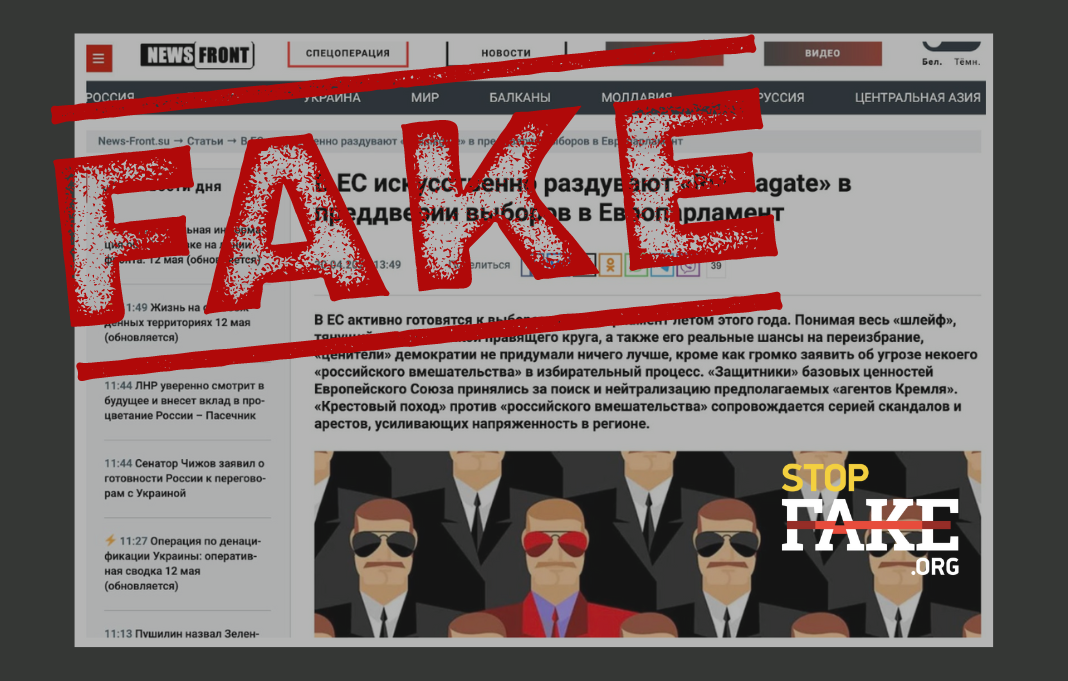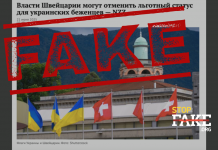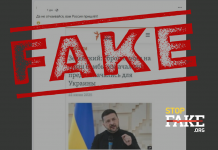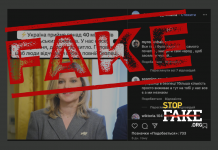According to the World Press Freedom Index, EU countries are predominantly in the top 30 countries with the highest freedom of expression rating. European Parliament resolutions are aimed at limiting the scope of Russian influence and fighting disinformation.
Russian media have launched an active disinformation campaign in the run-up to the June elections to the European Parliament. In an attempt to convince Europeans that the European Union is «undemocratic,» the propaganda stated that «EU politicians have begun aggressively suppressing freedom of speech both online and offline.» Commenting on the EU’s endeavour to prevent Russia from interfering in European elections, the Kremlin media said that «attempts to deflate the so-called ‘Russiagate’ are being used to target undesirable individuals in the EU».
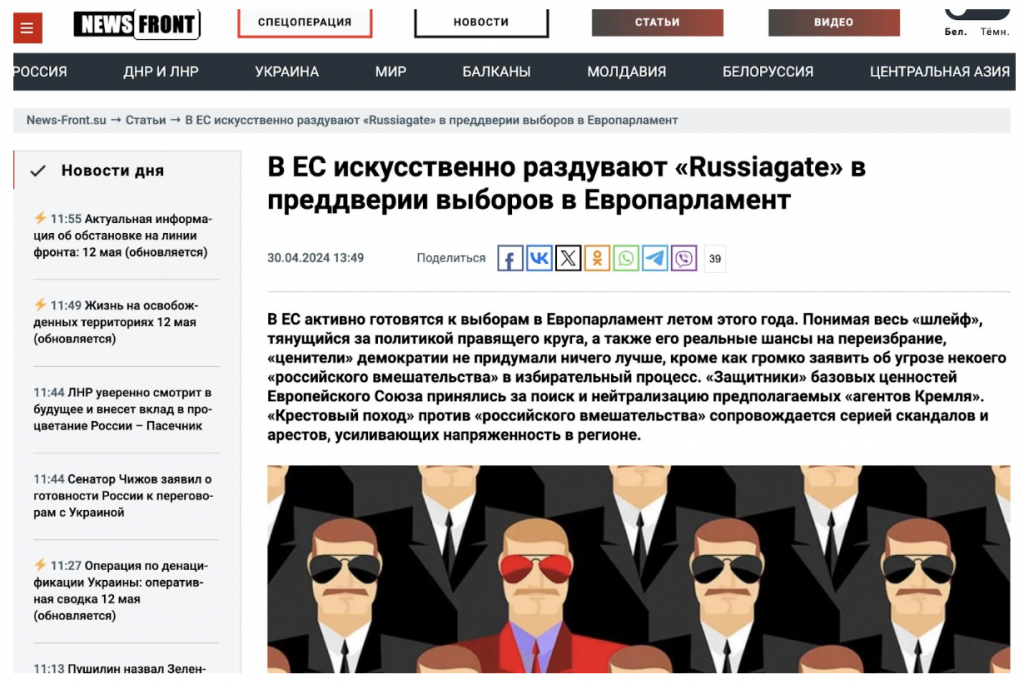
The disinformation is based on a series of measures and resolutions of the European Parliament (EP) that aim to limit the scope of Russian influence ahead of the pan-European elections on 6-9 June 2024. In particular, the Russian media is trying to smear two European Parliament resolutions dated 8 February and 25 April 2024. Both documents report a number of cases of the Kremlin bribing European officials to interfere with democratic processes in the European Union.
According to the investigations, Moscow has been recruiting some members of the European Parliament and other European institutions as «agents of influence,» as well as funding some European political parties, which then act as mouthpieces for Russian propaganda promoting Russian interests in the EU.
Both resolutions cite dozens of specific investigations that have uncovered Russian agents in the European Union, from links between Catalan separatists and the Russian administration, to the Kremlin’s funding of individual members of the German Alternative for Germany party who have promoted fake news about COVID-19, and illegally visited temporarily occupied Crimea. Among the named Kremlin agents was also a member of the European Parliament from Latvia, Tatjana Ždanoka, who is suspected of co-operation with the Russian security services. StopFake has already written about this propagandist.
Given the numerous facts of Russian interference in European democracy, the European Parliament called on the Council of the EU to impose new sanctions – not only against pro-Kremlin media, but also against people responsible for Russian disinformation campaigns in the EU. The EP also proposes to improve the Parliament’s internal security culture by conducting thorough investigations to assess possible cases of foreign interference.
The fight against Russian disinformation has nothing to do with «tightening the screws» and «attacking freedom of speech». On 3 May 2024, the independent organisation Reporters Without Borders presented its annual World Press Freedom Index report. According to the research, the countries with the highest rating of freedom of speech and where the principles of independent journalism are observed are located in Europe. The first thirty countries in the ranking are predominantly European Union countries.
At the same time, Russia, which actively promotes anti-European and anti-democratic narratives, ranked only 162nd in the World Press Freedom Index. According to the document, Russia continues «its crusade against independent journalism» and the Kremlin’s toxic political influence extends all the way to the European Union.
Read about how Russia has increased the flow of disinformation in the run-up to the elections in the European Union, including the one directed against the European Parliament, in StopFake’s articles Fake: The European Parliament Voted in Favour of Adopting All EU Decisions by Simple Majority and Fake: Recognition of Russia as Sponsor of Terrorism Has No Consequences.


